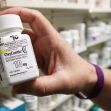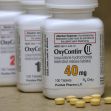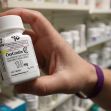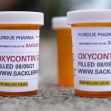A judge accepted Purdue Pharma’s bankruptcy claims on November 17, 2020 allowing the company to restructure and pay out their $8.3 billion settlement with the Department of Justice.
Purdue Pharma developed the addictive opioid OxyContin in the 1990’s and has been mired in lawsuits ever since. The DOJ presented evidence showing that company leadership knew OxyContin was addictive but fraudulently marketed the drug as non-addictive. The Sackler family — the company’s owners — developed and approved of predatory marketing tactics based on these fraudulent claims from 2007 to 2017.
Company representatives pled guilty to criminal fraud in October of this year, and Purdue Pharma filed for bankruptcy after reaching the billion-dollar settlement with the DOJ. Judge Robert Drain’s decision is likely to establish a precedent for similar cases in the wake of the opioid crisis.
Judge Drain noted that the company’s restructuring is meant to "alleviate" the opioid crisis manufactured, in part, by Purdue Pharma’s opioid sales and fraudulent marketing strategies. According to the DOJ, Purdue Pharma will be restructured into a public-benefit company “designed for the benefit of the American public.” The payouts are scheduled for rehabilitation efforts and restoration of those communities blighted by opioid addiction.
Stakeholders from the Sackler family are also required to contribute $225 million of their personal wealth to the settlement for their role in the fraudulent sales.
The settlement further requires the company to admit publicly to their unethical and fraudulent marketing campaigns for drugs like OxyContin.
In a public statement, Purdue chairman Steve Miller remarks that “Purdue deeply regrets and accepts responsibility for the misconduct detailed by the Department of Justice in the agreed statement of facts.”
The statement goes on to note the changes Purdue Pharma is undergoing as it transitions to a public-benefit company. Purdue Pharma has eliminated its sales force and will no longer market opioid medications. Additionally, the Sackler family has resigned from executive leadership, and the newly established board has implemented company oversights to avoid future malpractice.
Judge Drain remarked that this case represents “a critical building block” for future cases against Purdue and other opioid producers. The DOJ’s public statement notes that Judge Drain’s decision resolves the Federal Government’s case, but more are still to come. Thousands of suits await Purdue Pharma as states, municipalities, and individuals seek their own resolution to the opioid crisis.
The ubiquity of opioids has proven to have a deadly impact on Americans. The National Health Institute estimates that in 2017 alone 47,000 people died after overdosing on opioids — about 128 every day — while 1.7 million people struggled with addiction. The downstream effects of this crisis resulted in a $78 billion burden on our healthcare, recovery, and criminal justice systems.
For many, this decision will mark a path out of the opioid epidemic in the United States but many are skeptical. The DOJ has challenged Purdue Pharma in court before, and the results were just as spectacular and just as fleeting. In 2007, Three Purdue Pharma executives — Howard R. Udell, Dr. Paul D. Goldenheim, Michael Friedman — pled guilty to fraudulent marketing practices that claimed OxyContin was not addictive. The company was ordered to pay $600 million in fines. The executives themselves were given three months of probation and ordered to pay $34.5 million in fines collectively. None of the executives were incarcerated. Almost immediately after the case, the company reignited its fraudulent marketing strategies.
In 2013 Purdue initiated its “Evolve to Excellence” program to recoup losses and rehabilitate its image among health care providers. According to the DOJ, Purdue marketed to “high-volume prescribers” who prescribed the drug 25 times more than their peers. These prescriptions, evidence revealed, were often “unsafe, ineffective, and medically unnecessary.”
Purdue Pharma developed OxyContin in 1995, and that drug alone has generated $35 billion for the company. The CDC estimates nearly half a million Americans have died from opioid overdose since 1999.






